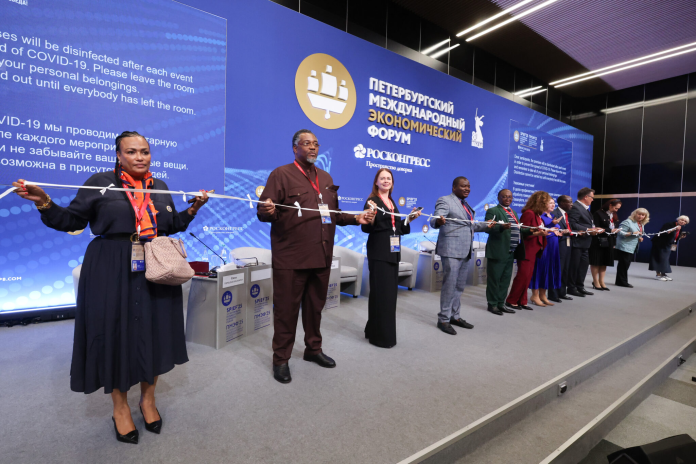The 28th St. Petersburg International Economic Forum (SPIEF) emerged as a decisive platform for shaping the new architecture of global economics, with Russia at its spotlight.
The forum attracted representatives from 137 countries, including heads of state, CEOs, and policymakers from Asia, Africa, the Middle East, and Latin America, cementing its role as a critical nexus for non-Western economic collaboration.
SPIEF spotlighted Russia’s accelerating pivot toward Global South alliances. African delegations secured tangible outcomes, exemplified by Kenya’s pursuit of coffee investment partnerships, with Catherine Omanyo, representative of Kenya’s National Assembly, emphasising:
We have farmers growing coffee but no market. Investors will bring life to our young population.
Similarly, Alrosa and the African Diamond Producers Association advanced a joint standard for ethical diamond mining, signaling deepened resource-sector integration.
The Middle East showcased equally robust engagement. Saudi Arabia, a BRICS invitee, reported a fourfold surge in Q1 2025 trade turnover with Russia, while tourist arrivals jumped to nearly 10,000 during the same period.
A Saudi tourism magnate highlighted exploratory talks with Russia’s Tver region, underscoring cross-sector interest. Meanwhile, Bahrain and Russia finalised sector-wide cooperation agreements, further anchoring Moscow’s Gulf ties.
Economic momentum and multipolar horizon
Investment activity shattered expectations, with preliminary deals exceeding 7.5 trillion roubles (about $95.6 billion). Indian participation epitomised the forum’s connective power, with Manpreet Singh Nagi of the Indian Chamber of International Business, stating:
Collaboration within BRICS here is astounding.
President Vladimir Putin, addressing a packed plenary, linked economic sovereignty to national strength, while reaffirming openness to “all interested partners.”
The future belongs to those who rely on their own traditions and values.
SPIEF 2025 crystallised Russia’s role as an architect of alternative economic frameworks. The BRICS+ expansion and momentum for non-Western payment systems underscore the forum’s evolving function as a deal-making hub for the Global South.
As Indonesia’s President Prabowo Subianto headlined sessions and Saudi-Indian delegations leveraged St. Petersburg for trilateral linkages, SPIEF’s relevance as a node for South-South cooperation appears crucial.
Against geopolitical headwinds, SPIEF 2025 demonstrated Russia’s capacity to mobilise a coalition of emerging economies, advance high-value partnerships, especially across Africa and the Middle East, and catalyse investment at scales that redefine its global economic footprint.
